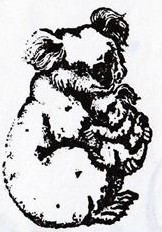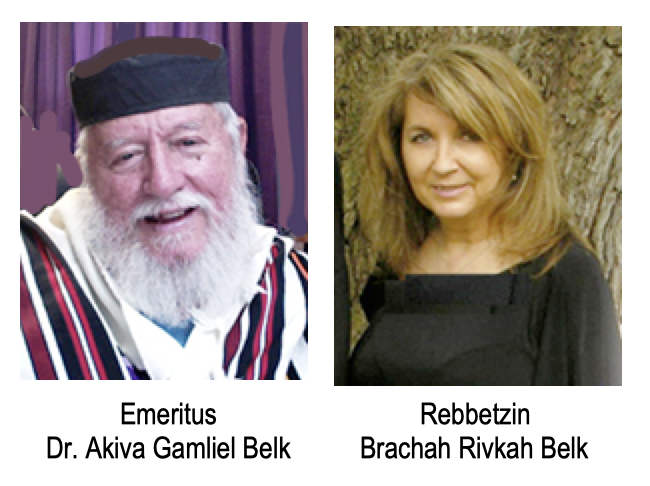Equanimity – First Steps 10
Equanimity – First Steps
The Baal Shem Tov sought and achieved equanimity with his mind always on G-d, he was unaffected by people’s opinions about him. Whether they praised or criticized him, he said to himself Isn’t this sent from G-d? And if it’s good in His eyes, shouldn’t it also be good in mine?
Rabbi Akiva had to deal with a generation that experienced a Yom Kippur soon after the Temple’s destruction, when there was no Kohen Gadol he said that Yom Kippur was still beautiful as it had been. When the Kohen Gadol exited the inner Sanctuary of the Temple you could visibly see the Presence of HaShem in his visage. Rabbi Akiva said, We do not necessarily need a Kohen Gadol! We are now purified directly by G-d Himself.
Rabbi Akiva’s strength was that he always saw the positive in every situation.
Rabbi Akiva once entered a city. Upon arrival, he sought a place to lodge; however, no one provided him with one. He said, All that G-d Does, He Does for the good! So he went and slept in a field. He had with him a rooster, a donkey and a lamp. A wind came and extinguished the lamp, a cat came and ate the rooster, a lion came and ate the donkey. He said: Everything that G-d does, He Does for good. That night, an army came and took the entire town captive. Rabbi Akiva said to his disciples: Did I not tell you that everything that G-d Does, He Does for good? (If the lamp had been lit, the army would have seen me; if the donkey would have brayed or the rooster would have called, the army would have come and captured me as well. Berachoth 60b
Rabbi Akiva had a donkey, a rooster, and a lamp with him. The donkey represents our animal instincts. It symbolizes pure materialism without spirituality. The rooster has the ability to distinguish between night and day. In fact, one word for rooster in Hebrew (sechvi) which also means insight, and consequently symbolizes our own intellectual capacities. Therefore the rooster in Rabbi Akiva’s story is a metaphor for our intellectual yearning. We all strive for perfection in our understanding of the world. The lamp symbolizes our spiritual pursuits, as the Torah Says, The lamp is a mitzvah and the Torah is light. Mishlei (Proverbs) 6.23
We are always striving for the perfect balance between our material needs and desires, our intellectual ability and understanding, and our spiritual objectives. But we never [seem] to find it. The lions and wildcats come and devour the product our toil. The wind comes and blows out our hopes. But this all for the best… Everything that G-d does, He does for good
Rabbi Akiva taught: Love your neighbor like yourself. Every person has SOME positive aspect.
Vayikra(Leviticus) 19.18 You shall not avenge, nor bear any grudge against the children of your people, but you shall love your neighbor as yourself; I AM The L-rd
לֹא תִקֹּם וְלֹא תִטֹּר אֶת בְּנֵי עַמֶּךָ וְאָהַבְתָּ לְרֵעֲךָ כָּמוֹךָ אֲנִי יְהֹוָה
Vayikra( Leviticus) 19.18 Not – shall avenge – and not – shall bear grudges – everything from Aleph to Tav – sons of – your people – and shall love – your friend (Kamocha) – as yourself – I AM
The Baal Shem Tov interprets the word Kamocha (as yourself) in this verse as follows:
When a person gets up in the morning and looks at himself / herself in the mirror he / she thinks, I am basically a good person. I have my faults and failings; I am not perfect. But I am more good than bad. This is how we must evaluate our neighbor: He / She is basically good; I will overlook my neighbors faults.
This is not easy. It requires us to focus on the good, rather than the bad. That was the power of Rabbi Akiva.
Nothing sets the spiritually gifted apart from the rest of us more than their utter lack of hubris and arrogance. For indeed nothing wreaks more spiritual havoc than the sort of loud and blatant assertions of self we’re accustomed to hearing.
So if we are ever to achieve true spiritual excellence we would need to learn how important it is to abide by the decisions of and surrender to forces greater than ourselves, and most especially to G-d Almighty. That is, not only to be a humble person and less self-assertive, but to actually set self aside and surrender to the Other’s(G-d’s)Will.
We are all acquainted with GPS systems. When engaged the system tells us which way to go, which way to turn. If you miss a turn it says recalculating and finds a new route to take. If in our spiritual lives we take a wrong turn we should then recalculate calmly and endeavor to get back on the right path.
From the Torah’s perspective our real world is the spiritual one. HaShem Uses the material world to interact with us so with each event in our lives we should be looking to interact with HaShem and not let the circumstances overwhelm us.
One step at a time.
As Neil Armstrong said One small step for mankind, one giant leap for mankind. Let each moment be that one small step and our world will leap into spirituality.

Blessings and Peace
Rebbetzin Revi Belk
